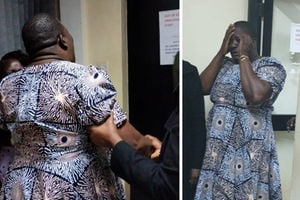Now that we have got Olunga, what should we do with him?
What you need to know:
Wikipedia has a listing of all the players at Afcon and which clubs they play for.
Essentially, the countries that aren’t there are the ones where they hardly play football.
Football, it seems, has reorganised and globalised the world in ways we are yet to fully appreciate.
The Africa Cup of Nations (Afcon) in Cairo, Egypt, is in high gear. As always, there are heartbreaks and pleasant discoveries. One of them was Harambee Stars’ forward Michael Olunga.
Although as a good East African who wishes all members of the Community well one might pretend to put on a neutral face, it was still sheer joy watching him demolish Tanzania’s Taifa Stars’ hearts with his two masterful goals. In the end, as we say in the ‘Matooke Republic’, Tanzania “drunk” three goals, and Kenya two.
GLOBALISED
Olunga is, no doubt, known to fans of Kenyan football. I am not one of them. I love the game but was put off by the player brawls; running battles between rival fans; the bad pitches; and the horrible filming with a few cameras chasing the game up and down, leaving one dizzy.
I read Olunga’s profile only after his heroics in Cairo, whereupon I learnt that he plays for Japanese club Kashiwa Reysol. I had vaguely heard of Kashiwa Reysol but never watched them — or a single game in Japan’s J1 League, for that matter. How did Olunga end up in Kashiwa Reysol? It is a question not just for him but the majority of the players at Afcon.
The Uganda Cranes, the team that I would wish to win Afcon but probably won’t, has a lad who plays in India’s I-League. Who, reading this, has ever watched an I-League game on TV? Another one plays for Kazakhstan club Shakhter Karagandy — on loan from Romanian club Politehnica Iasi. Most times when we read about Kazakhstan, a hardy people, it’s about some warlord.
Romanians seem to always be mistreating their gypsy (Roma) people but mostly hacking everything from elections to banks. Some have labelled a small town there where everyone is a hacker or creator of fake news to feed the internet the world cybercrime capital. Yet young Africans find a way to go there and play football.
Wikipedia has a listing of all the players at Afcon and which clubs they play for. Essentially, the countries that aren’t there are the ones where they hardly play football. Football, it seems, has reorganised and globalised the world in ways we are yet to fully appreciate. But more importantly, it has helped often economically and socially marginalised sections of African societies to seize possibilities beyond those imposed by their local political realities — as a recent story in the British newspaper, The Independent, about Egyptian and Liverpool star striker Mo Salah blew me away.
BLACK PEOPLE
“Mohamed Salah’s presence at Liverpool Football Club has been a direct cause of a fall in Islamophobia in the city, according to a new study”, the story said. “Research by Stanford University found an 18.9 per cent drop in anti-Muslim hate crimes on Merseyside in the period since Salah signed for Liverpool in June 2017, in a £34m transfer from Roma.
“No other offence had a comparable drop in the same time frame, while anti-Muslim tweets by Liverpool fans halved compared to other major Premier League clubs.”
Just one man, a footballer who happens to be Muslim, bringing joy and glory to what had been a long-suffering Liverpool nation, changed attitudes in ways that thousands, if not millions, of news reports, commentaries, hours of TV and civic activism for religious understanding and tolerance had failed to do.
African footballers are the few black people in places like Vietnam or Kazakhstan whom the folks there “speak” to during the football season. They are the only black people they have ever got to cheer and show affection for, although many of them still endure racism.
OPPORTUNITIES
The path that takes them there is not a beaten one either. For decades, only a small group of Africans had access to global goods and opportunities. You needed to have been well-born, or even if born in disadvantage, to have won a lottery of sorts that got you to a good school or landed you at the doorsteps of a Western charity of some scholarship-giving Mzungu religious order. That opened the way; the sports scholarship in a Western university, a placement in an elite college programme and later an international job — or a trial with a world-famous sports club.
From about 25 years ago, that started to change. Underprivileged Africans still trooped outside the continent but most ended up cleaning streets, working at the docks, picking strawberries and hawking. The internet, a more open world, and the reduction in the cost of travel, wrestled the power to apportion all opportunities from the hands of our Establishment elite.
Today, an orphan who is a football prodigy in the Kibera slum has the real possibility to play for Manchester United or Real Madrid in another eight years — if somebody just posted a clip of him on social media. A few decades ago, he would have ended up mostly one way — dead.
Mr Onyango-Obbo is the publisher of Africapedia.com and explainer Roguechiefs.com. @cobbo3





